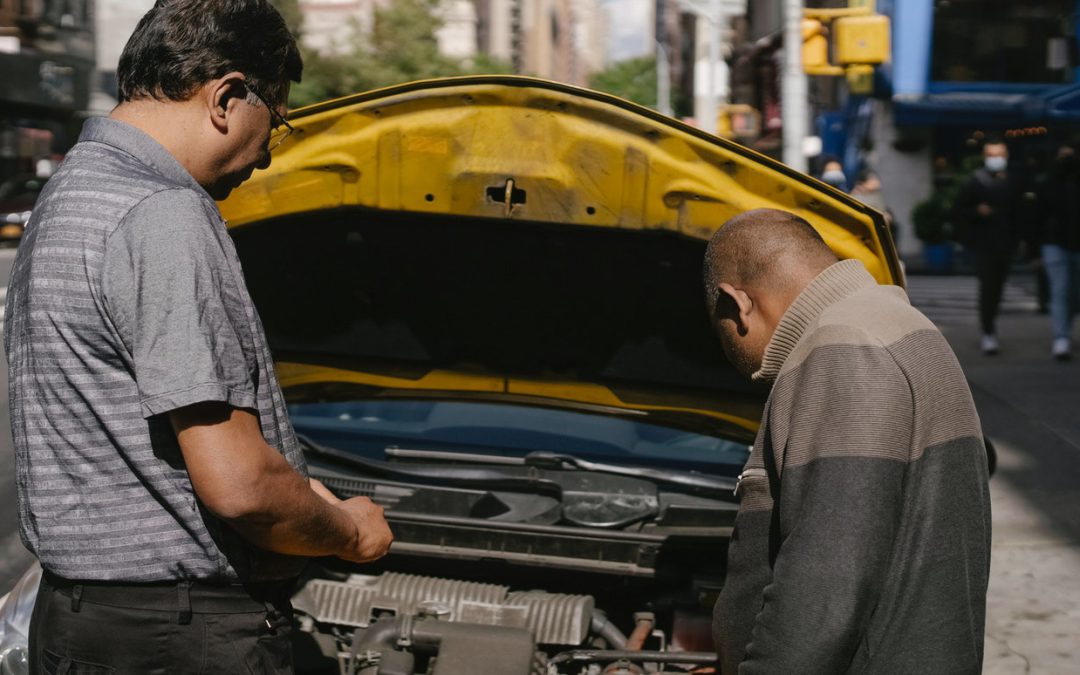Your engine is the heart of your car. When it overheats, your car basically stops working. That’s why it’s important to know the common reasons your engine might overheat, and how to fix them. In this article, we will discuss 5 of the most common reasons for engine overheating, and how you can prevent it from happening.
If your engine is overheating, there are a few different things that could be causing the issue. Here are five of the most common reasons for an overheating engine and how to fix them.
1. Lack of coolant: If your engine is low on coolant, it will overheat. Make sure to check your coolant levels regularly and top off as needed.
2. Cooling system leak: A leak in your cooling system can also cause your engine to overheat. Be sure to have any leaks repaired promptly
3. Clogged radiator: A clogged radiator can prevent coolant from flowing properly, causing your engine to overheat. Be sure to have your radiator flushed and cleaned as needed.
4. Thermostat failure: If your thermostat fails, it can cause your engine to overheat. Be sure to have your thermostat replaced as needed.
5. Fan failure: If your engine’s cooling fan fails, it can cause your engine to overheat. Be sure to have your cooling fan replaced as needed.If your engine overheats, be sure to take action immediately to avoid damage. Turn off the engine and allow it to cool down before adding coolant or checking for leaks. Once the engine has cooled, add coolant as needed and check for leaks. If you cannot find the source of the leak, have your vehicle towed to a repair shop.
If your engine is overheating, it’s important to find out what’s causing the problem so you can fix it. These are just a few of the most common reasons for an overheating engine. If you’re having trouble pinpointing the problem, consult a mechanic for help.
Overheating Engine Warning Signs
The Hood is Hot
When the engine is running, the hood should emit heat and feel warm to the touch. This is perfectly normal. However, if your car’s hood is exceptionally hot, this could be cause for concern. You should be able to comfortably rest your palm on the hood for 10 seconds without it burning.
The Light or Temperature Gauge
You should see a warning light or gauge on your dashboard displaying the temperature of your engine. If the light flashes or the gauge reads close to the maximum, it implies your engine is overheating. This warning light, however, cannot always be relied on to warn you of an overheating engine. It works by detecting the temperature of the coolant, thus if there is a massive coolant leak, there is nothing for it to measure.
Ticking Sound
If your engine is creating an audible ticking noise, it implies that your engine oil is not adequately lubricating the moving parts. Overheating engine oil causes it to lose its lubricating characteristics and behave more like water than oil. If the mechanical parts of your engine are clacking against each other loudly at high temperatures, you should anticipate them to wear and tear more faster than typical.
Coolant Spills on the Ground
A puddle of coolant under your automobile could indicate a leak anywhere in your cooling system. It could also mean that your engine overheated and boiled the coolant within the radiator, forcing the overflow tank to leak surplus liquid to relieve the high pressure. In either case, your car’s cooling system no longer has the proper amount of coolant running through the engine, making it susceptible to overheating.
The Hood is emitting steam.
Steam rising from beneath your hood indicates that your engine is overheated. Pull over and turn off the engine as soon as you notice. When coolant reaches its boiling point, it condenses into steam, creating pressure within the cooling system. It will come out of the front and sides of the hood as it escapes from your car’s radiator cap or coolant reservoir.
Engine power has been reduced.
An overheated engine may be unable to deliver enough power to keep your car going at the desired rate. If you suspect your engine is losing power, keep an eye out for strange odors or noises that could indicate engine overheating. Keep an eye on the temperature gauge or light on the dashboard and pull over if you suspect the engine is laboring.
Engine overheating can cause a lot of damage to your car, and it’s important to know the reasons why your engine might be overheating. In this post, we’ve covered the five most common causes of engine overheating. If you experience any of these problems with your engine, take it in for repair as soon as possible.
Are You Looking for an Independent Auto Service Shop You Can Trust?
If you’re considering making a change to an independent auto repair mechanic trusted by thousands of happy customers, look no further than Autotech Blackhawk. Why? We differ from other automotive repair shops because we are a relationship shop. This means that the more of your car repair needs we support you with, the better able we are to customize our recommendations based on your driving habits and needs. Whether you want to keep the daily driver in ‘good enough’ condition, style your new car so that it’s customized just for you, maintain your favorite car in ‘like new’ condition, or even train your whole family to be more knowledgeable about cars – we partner with you to ensure that your cars meet your needs. We also offer an industry-leading 3-Year/36,000-mile warranty, so we only use Original Equipment and manufacturer-recommended products. Contact us now to book your no-contact, friendly appointment! We truly value your trust and your business, so thank you for staying local with your auto repair needs.

